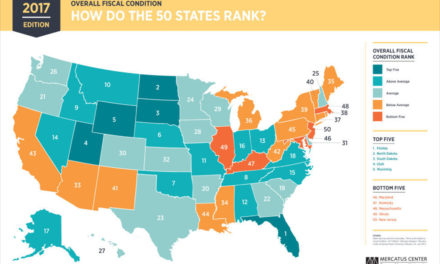How a Founder’s Country of Origin Affects a New Firm’s Structure
How a Founder’s Country of Origin Affects a New Firm’s Structure

David Waguespack and his colleagues recently examined mountains of data from an online role-playing game in which players have the option of either founding or joining new companies. They analyzed the behavior of about six and a half million players from two hundred countries around the world who had formed a total of 300,000 virtual companies. This rich dataset provides an excellent approximation of the real-world behavior related to the formation of new firms.
Why This Matters Waguespack’s study shows that entrepreneurs may have biases they’re not aware of, and, in some cases, these biases may originate from the political structure of their countries of origin.
The Takeaway In deciding on an organizational structure for a new firm, entrepreneurs need to make sure they don’t just follow an unconscious script, but that they do what’ll work best for their particular business.
In Depth
For centuries, economics has influenced political science. After all, the first great work of modern economics, Adam Smith’s The Wealth of Nations published in 1776, has long had a major impact on how policy makers conceive of the role of government. For example, in the early 1790s, American founding father James Madison cited Smith’s magnum opus, which stressed the efficiency of free markets, in his opposition to a national bank. But political science also has much to teach economists, argues David Waguespack, an associate professor of management and organization at the University of Maryland’s Smith School of Business. “Political institutions can also affect economic behavior, and this connection is something that is talked about much less,” says Waguespack, who earned a Ph.D. in political science at the University of Oregon and taught statistics at SUNY Buffalo before coming to the University of Maryland in 2005.
As Waguespack stresses, the insights of political science can inform several subfields of economics. Consider for example the literature on the organizational structure of new firms. “Many scholars assume that entrepreneurs arrive at their decision solely on the basis of what will be the most efficient for the future company—that this choice follows a rational logic. But there are lots of irrational forces at work; and one key factor happens to be the entrepreneur’s own biases, which are related to the nature of the political institutions in his or her country of origin,” he says.
Waguespack provides some evidence for his hypothesis in a recent paper, “Cultural Imprinting, Institutions and the Organization of New Firms,” which he co-wrote with Eric Dunford and Johanna Birnir, two members of the University of Maryland’s Department of Government and Politics. This empirical study examined mountains of data from an online role-playing game called EVE Online, in which players have the option of either founding or joining new companies. Waguespack and his colleagues analyzed the behavior of about six and a half million players from two hundred countries around the world who had formed a total of 300,000 virtual companies.
Among the study’s key findings was that players who came from countries with more effective and transparent political institutions—say, Germany—tended to give more autonomy to employees in the companies that they founded. Likewise, players from countries with more institutional corruption—say, Russia—tended to give less autonomy to their employees; these companies, in turn, had a hierarchical structure. “From an efficiency standpoint, sometimes a hierarchical structure is a good thing for a new company. But my argument is that entrepreneurs are not necessarily making informed decisions; their country of origin may actually be making the choice for them,” says Waguespack.
Waguespack suggests that the phenomenon of cultural imprinting—which refers to the impact of childhood experiences on adult behavior—accounts for his results. As he notes, organizational forms are often dependent on “the formative experiences” of founders. So if someone grows up in an environment where there is more cooperation between individuals, that person is likely to replicate that history when organizing a new firm. “This line of research has something in common with behavioral economics,” says Waguespack. “Entrepreneurs often operate on the basis of unconscious forces, of which they are not aware. And in order to make the best decisions for their companies, they need to understand the particular biases that they may be bringing to the table,” he adds.
Joshua Kendall has written on business and healthcare for numerous publications including BusinessWeek, Fortune.com, The New York Times, The Boston Globe and The Washington Post. For more about his work visit JoshuaCKendall.com.




